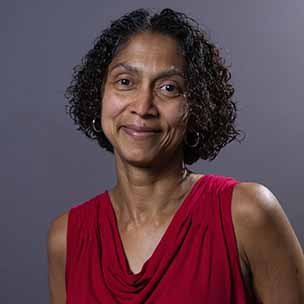BLOOMINGTON, Ind. - Kosali Simon, a distinguished professor at the Paul H. O’Neill School of Public and Environmental Affairs, along with University of Chicago Provost Katherine Baicker, has been awarded a five-year National Institutes of Health program grant of $15,928,165 to lead a team of researchers with the National Bureau of Economic Research, the Indiana University School of Medicine and Regenstrief Institute to study the unique aspects and potential barriers of healthcare provision for people living with Alzheimer’s disease and related dementias (ADRD).
The NIH’s National Institute on Aging (NIA) funded the P01 project which consists of five analytic components that will consider how healthcare and health outcomes vary between patients with and without ADRD, and across the continuum of ADRD progression.
“I look forward to the overall administrative and research co-leadership of the program as well as of one analytic component on the role of racial concordance between providers and patients and causal impacts of a concordant match on healthcare use and health,” said Simon, who is also an associate director of IU’s Irsay Institute for sociomedical sciences research and an investigator at the Regenstrief Institute.
The program project, “Healthcare Decision-Making and Outcomes for People Living with Alzheimer's Disease,” aligns with the IUB 2030 strategic plan that prioritizes transformative research and creativity with a focus on improving the health and well-being of older adults through expansion of IU’s nationally recognized programs in aging research. The total subcontract to IU amounts to $1,804,280.
“This research initiative represents an exemplary collaboration between IUB and the IU School of Medicine and Regenstrief Institute’s IU Center for Aging Research,” said Malaz Boustani, founding director of the Sandra Eskenazi Center for Brain Care Innovation, founding director of the Center for Health Innovation and Implementation Science, an investigator at the Regenstrief Institute, and the lead on the IU subcontract. “Through decades of research in brain health, we have learned that by reorganizing care, we can obtain better outcomes at lower costs. Health and behavioral economists and clinical experts working together is essential to bring evidence to bear in informing care delivery and payment policy.”


